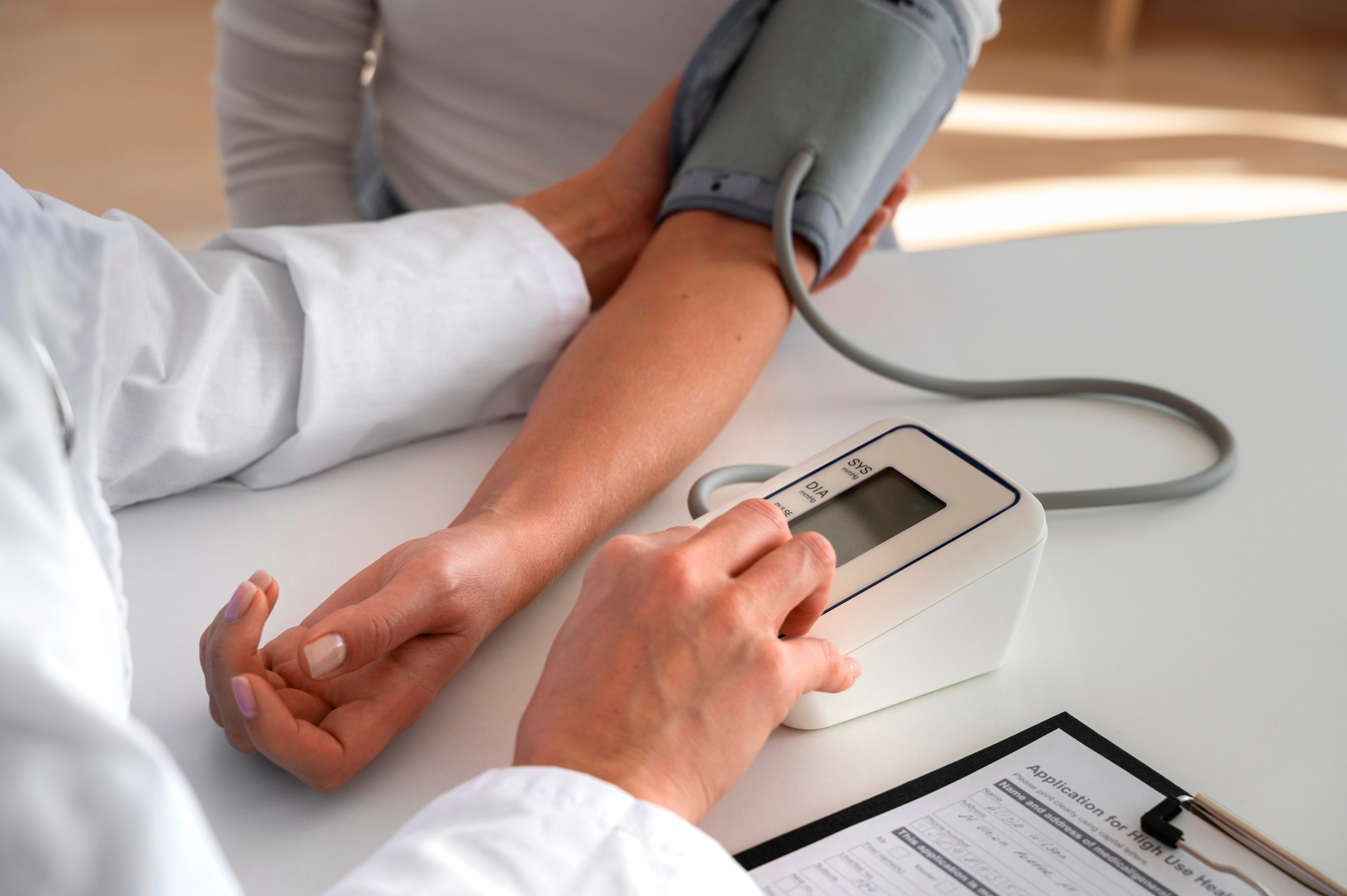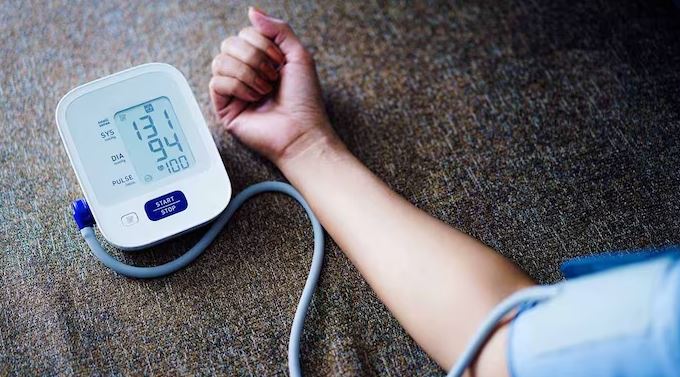Introduction
High blood pressure, also known as hypertension, is a common health condition that affects millions of people worldwide. It is a silent killer that often goes unnoticed until it leads to severe health complications. Monitoring and managing high blood pressure is crucial to prevent heart disease, stroke, and other related conditions. While medication may be necessary for some individuals, there are natural approaches that can effectively lower blood pressure and improve overall cardiovascular health. In this blog post, we will explore the importance of monitoring and managing high blood pressure, with a focus on natural approaches that promote a healthy lifestyle.
Worried of High Blood Pressure? Adopt natural ways to lower it
Understanding High Blood Pressure
High blood pressure occurs when the force of blood against the arterial walls is consistently too high. This puts strain on the heart and blood vessels, potentially leading to serious health problems. Blood pressure is measured using two numbers: systolic pressure (the top number) and diastolic pressure (the bottom number). Normal blood pressure falls below 120/80 mmHg, while prehypertension ranges from 120/80 to 139/89 mmHg, and hypertension is defined as consistently having reading above 140/90 mmHg. It is important to understand these numbers and their implications for our health.

Dietary Modifications
Reduce Sodium Intake: One major dietary factor contributing to high blood pressure is excessive sodium consumption. Many processed and packaged foods contain high amounts of salt, so it is essential to read labels and choose low-sodium alternatives. Reducing sodium intake to less than 2,300 milligrams (about 1 teaspoon) per day is recommended.
Adopt a Balanced Diet: Incorporate heart-healthy foods into your diet, such as fruits, vegetables, whole grains, and lean proteins. These provide essential nutrients and fiber while helping to reduce blood pressure.
Limit Alcohol Consumption: Excessive alcohol intake can raise blood pressure. Moderation is key, with recommended guidelines of one drink per day for women and up to two drinks per day for men.
Exercise and Physical Activity
Benefits of Regular Exercise: Engaging in regular physical activity can significantly lower blood pressure. Exercise helps strengthen the heart, improve blood flow, and reduce stress. Aim for at least 150 minutes of moderate-intensity aerobic activity or 75 minutes of vigorous-intensity exercise per week.
Types of Exercises: Incorporate a variety of aerobic activities (walking, swimming, cycling), strength training exercises, and flexibility workouts into your routine to promote a healthy heart and lower blood pressure.
Incorporating Exercise into Daily Routine: Find ways to make physical activity a part of your daily life. Take the stairs instead of the elevator, walk or bike to work, or participate in group fitness classes. Staying motivated and consistent is key.
You can read our another post on International Friendship Day

Stress Management Techniques
Impact of Stress on Blood Pressure: Chronic stress can contribute to higher blood pressure. Identifying stressors and adopting effective stress management techniques is crucial for maintaining healthy blood pressure levels.
Relaxation Techniques: Deep breathing exercises, meditation, and yoga can help reduce stress and promote relaxation. These techniques have been shown to have a positive impact on blood pressure levels.
Finding Work-Life Balance: Setting boundaries, managing time effectively, and seeking support from friends, family, or professionals can aid in stress reduction and overall well-being.
Other Natural Approaches
While lifestyle changes are crucial, there are other natural approaches that can be considered. Herbal supplements and remedies like garlic, hawthorn, and fish oil have shown potential for lowering blood pressure. However, it is important to consult with a healthcare professional before incorporating these supplements, as they may interact with other medications or have undesirable side effects. Alternative therapies like acupuncture or acupressure may also be worth exploring, but it is essential to seek treatment from trained and qualified professionals.
Monitoring and Maintaining Healthy Blood Pressure
Regular blood pressure checks and monitoring play a vital role in managing high blood pressure. Individuals can monitor their blood pressure at home using blood pressure monitors, which are readily available at pharmacies and online. However, it is essential to consult with a healthcare provider for accurate assessments and personalized advice. They can help determine the optimal blood pressure range and recommend appropriate lifestyle changes or medication as needed.
More: Wanted to download Odishashop.com visit here

Write A FAQ For Worried of High Blood Pressure? Adopt natural ways to lower it
What are the common symptoms of high blood pressure?
Common symptoms include headaches, dizziness, chest pain, shortness of breath, and vision problems.
Why should I be worried about high blood pressure?
High blood pressure, if left uncontrolled, can lead to serious health complications such as heart disease, stroke, kidney problems, and even death.
Can natural remedies effectively lower high blood pressure?
Yes, several natural remedies have proven to be effective in lowering blood pressure, including adopting a healthy diet, regular physical activity, reducing stress, and limiting alcohol consumption.
What kind of diet should I follow to lower my blood pressure naturally?
A diet rich in fruits, vegetables, whole grains, low-fat dairy products, and lean proteins, while limiting sodium, saturated fats, and added sugars, can help lower blood pressure.
How much physical activity should I engage in to lower blood pressure?
Aim for at least 150 minutes of moderate-intensity aerobic exercise or 75 minutes of vigorous exercise every week. This can include walking, cycling, swimming, or any activity that increases your heart rate.
Are there specific foods that can help lower blood pressure?
Yes, incorporating foods like bananas, leafy greens, berries, fatty fish (rich in omega-3s), and garlic into your diet can assist in naturally lowering blood pressure.
Does stress affect blood pressure?
Stress can temporarily elevate blood pressure, and chronic stress can contribute to long-term high blood pressure. Adopting stress-reducing activities like meditation, deep breathing exercises, yoga, or engaging in hobbies can help lower blood pressure.
Can natural remedies replace prescribed medications for high blood pressure?
It is essential to consult with a healthcare professional before making any changes to prescribed medications. While natural remedies can be effective, they may not be sufficient for everyone, and some individuals may require medication to control their blood pressure.
Are there any specific lifestyle changes I can make to help lower my blood pressure naturally?
Yes, apart from a healthy diet and regular exercise, reducing alcohol consumption, quitting smoking, maintaining a healthy weight, and getting enough quality sleep can significantly contribute to lowering blood pressure.
When should I seek medical help for high blood pressure?
If you consistently have high blood pressure readings, despite adopting natural remedies, or if you experience severe symptoms such as chest pain, shortness of breath, or blurred vision, it is essential to consult a healthcare professional for proper diagnosis and treatment.
Conclusion
Monitoring and managing high blood pressure is crucial for maintaining overall health and preventing serious cardiovascular complications. While medication may be necessary for some individuals, adopting natural approaches is an effective way to lower blood pressure. By making dietary modifications, engaging in regular exercise, practicing stress management techniques, and considering other natural approaches, individuals can take control of their blood pressure levels and improve their overall well-being. Remember, it is essential to consult with healthcare professionals for accurate assessments, personalized advice, and guidance on incorporating natural approaches into your lifestyle.

